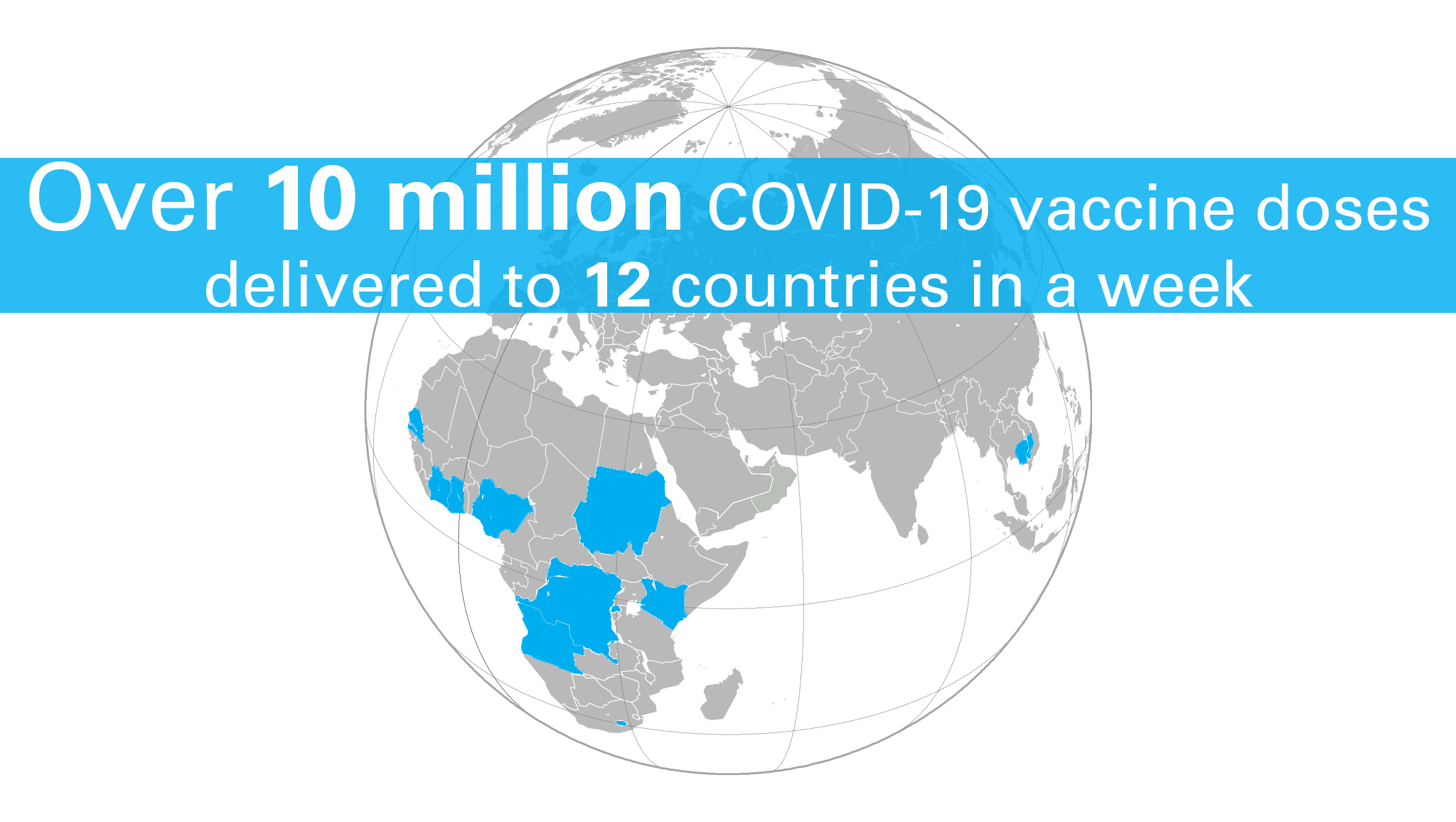‘For everyone, vaccines mean light at the end of the tunnel’
On February 24th 2021, Irishman Fiachra McAsey witnessed history as Ghana became the first country to receive COVID-19 vaccines under the historic COVAX initiative. Fiachra is UNICEF’s Deputy Representative in Ghana and for him the delivery of 600,000 vaccine doses to the capital city of Accra, just 11 months after a pandemic was declared, provided much needed hope for the future.
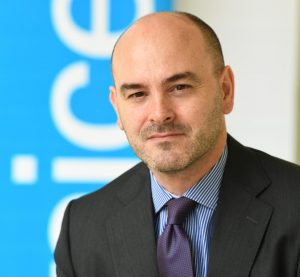
Fiachra McAsey, UNICEF Ghana
©UNICEF/DeJongh
“Vaccines mean there is light at the end of the tunnel. They arrived just as Ghana was coping with its second wave. People needed reason to hope. Especially those living in high-density urban settings, where it’s often difficult to enjoy basic hygiene, like handwashing,” says Fiachra.
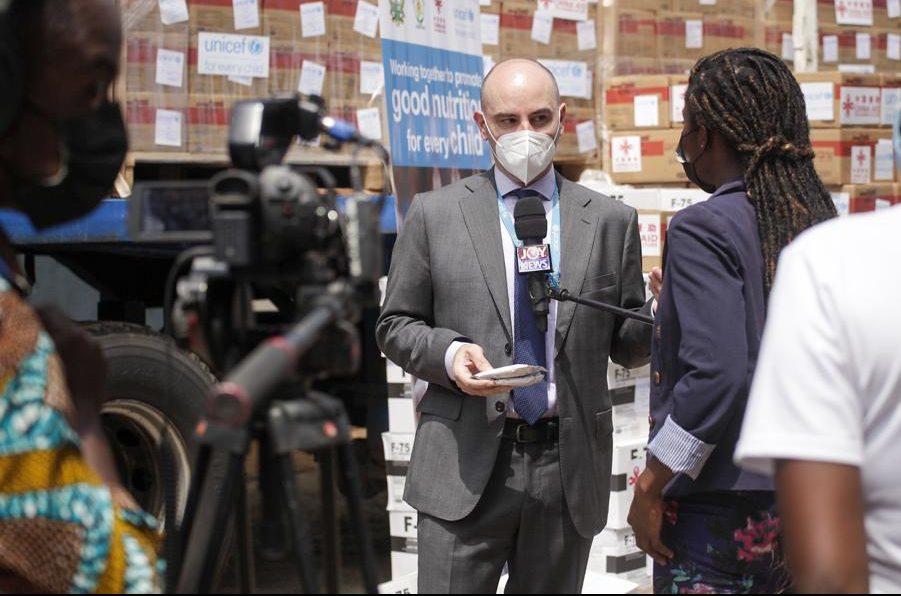
Fiachra McAsey speaks to Ghanaian TV at the handover of COVID-19 vaccines to authorities in Ghana at the end of February ©UNICEF
The shipment to Ghana of 600,000 doses of the vaccine represents the beginning of what should be the largest vaccine procurement and supply operation in history. In the first stage, 10 million COVID-19 vaccine doses were delivered to 12 countries in just one week – and that is just the beginning. UNICEF is leading in the procurement and delivery of COVID 19 vaccines for 82 low- and lower middle-income countries participating in the COVAX Facility.
The COVAX Facility, co-led by Gavi, the Coalition for Epidemic Preparedness Innovations (CEPI) and WHO, together with delivery partner UNICEF, aims to provide at least 2 billion doses of approved COVID-19 vaccines by the end of 2021, enabling participating economies to protect frontline health care and social workers, as well as other high-risk and vulnerable groups.
Being there for children and their communities
Fiachra and his UNICEF team are now working closely with Government to ensure vaccines reach frontline workers and the most vulnerable. This will help protect the health and education services that children and families depend on. “The next phase is distribution, ensuring efficiency, equity, cold chain reliability and supportive infrastructure. We’re here to support as much as possible.”
“Children were seriously affected by the outbreak of COVID-19 in 2020. Schools were closed for nine months and most children could not participate consistently in learning. That gap was significant, given already low learning outcomes for children prior to the pandemic. The disruption was particularly difficult for adolescent girls, who bear the burden of household work and care and have been at heightened risk of early marriage, and sexual and gender-based violence. Getting girls back into school is a priority.”
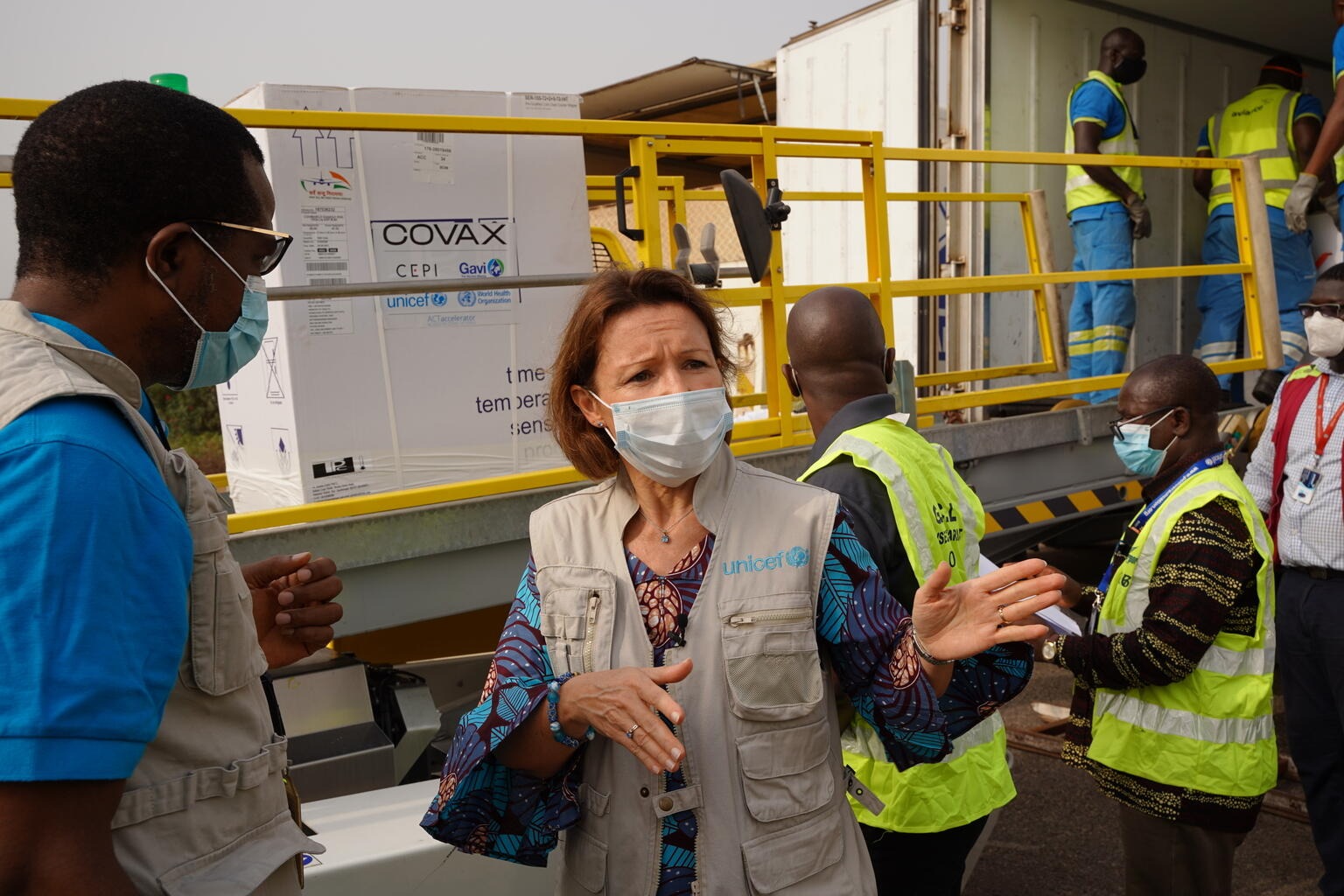
Protecting everyone and protecting the future
Globally, UNICEF is working to make 2 billion vaccine doses available through the COVAX initiative in 2021 and Fiachra believes these can’t arrive soon enough for countries like Ghana, which face the reversal of hard fought economic and social progress. “Ghana was the first country to ratify the Convention on the Rights of the Child in 1990 and has since achieved substantive progress for children. While still facing difficult challenges prior to the pandemic, overall, its development was considered a huge success for Africa. COVID-19 now threatens that success. The reality is that many households have been severely affected economically and socially. Many parents are facing a new dilemma – choosing between the economic survival of the family or the education of a child. Between sending your child to school or sending them to work.”
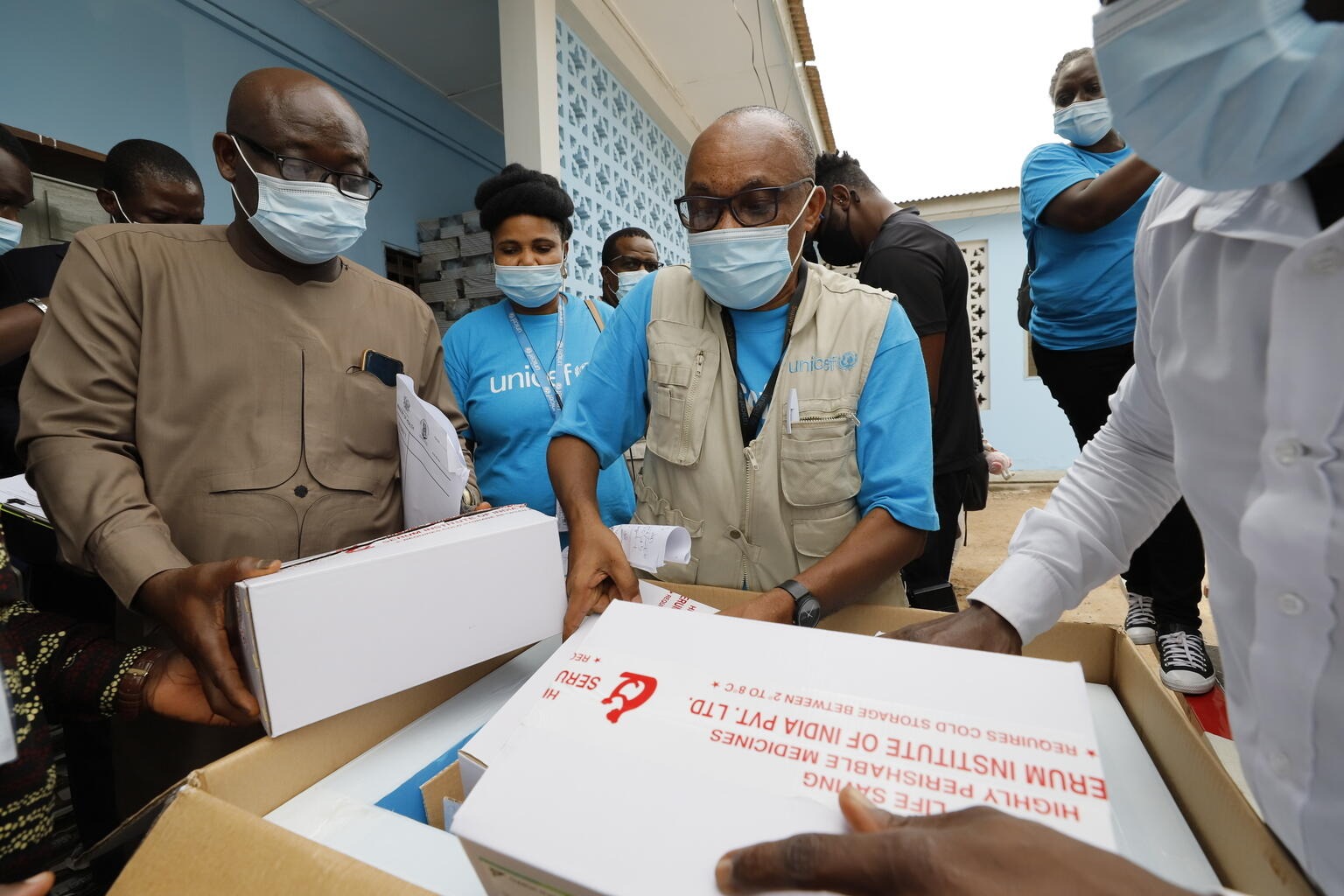
A universal moment of standing together
The tragic impact of the pandemic has been felt in every country in the world. However, Fiachra also sees hope in how people are coming together and supporting both their community at home, as well as people around the world. “I think there is a universal feeling of solidarity across the globe. We are all in the same boat. While the severity may differ, the problems are the same in nature. Everybody understands there are challenges. And everyone knows that help from outside is needed.”
“The pandemic made it clear that we are all connected, and we can’t hope to be rid of COVID-19 until the most at risk are helped. And when it comes to emerging variants, the sooner we act together, the less risk we face individually.”
“The ‘build back better’ idea is often talked about. Really, it means combining all available resources now to strengthen the systems for the future – whether that’s the healthcare, social protection or education system. I hope we can all learn enough from this challenge to invest enough to improve resilience against future shocks.”
“I also hope Ghana can emerge stronger from this experience, better able to do the right things for its children and their future.”
COVAX is co-led by Gavi, the Vaccine Alliance, the World Health Organization (WHO) and the Coalition for Epidemic Preparedness Innovations (CEPI), with UNICEF as a key implementing partner.
If you would like to support UNICEF’s work to vaccinate frontline health care workers against COVID-19, and why that work is crucial for children click here.
